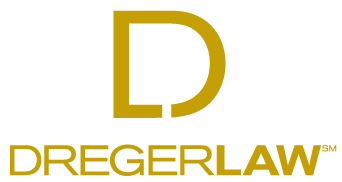This is your small business. But you can’t possibly know every detail that goes into the three important functions of your company (A Visionary to focus on promoting your business’s image in the marketplace; A Manager to develop efficient systems to generate and distribute your business’s products; and A Technician to get the work completed with the necessary skill and expertise).
Teamwork Matters
Once you’ve determined which of the three roles suits you the best, you can then find talented people to fill the other two positions. And that’s when you’re in the right place to begin tackling your actual business plan. You and your team together have the valuable expertise needed to make a business plan that’s unique and specific to your industry.
As to the Visionary function, the person you hire must create a detailed marketing plan that identifies the target customer base, specifies the exact manner by which these customers can be found (e.g. social media advertising, public event exposure, expositions, lead lists) and sets forth a weekly plan for achieving measurable customer base growth. This means that on any given week during the six month build of the marketing department of your business, you can easily see the systems being constructed to generate a reliable stream of customers for your product and to effectively follow up on customer leads, customer satisfaction and referrals.
In short, you are building an in-house advertising agency for your business, complete with marketing policies, procedures and performance criteria. Similarly, the person you hire to perform the Manager function must be detail-oriented and must be capable of drafting an Operations manual that spells out the precise system by which a customer order gets processed. (e.g. from intake, to packing, to shipping, to tracking) and ultimately, results in an on-time delivery of the product to the customer.
This means that over the six month build of your distribution department, you can identify the orderly systems being created, so that your company will be equipped to respond to customer demand in an efficient, timely manner that will maximize customer satisfaction and repeat business.
A Better Idea
Instead of buying a general text at a bookstore to give you vague steps for this important document, I have a better idea. Get a notebook and divide it into three sections. Every section should have its own tab that represents each of the three positions we’ve discussed. Now, spell out what is needed for each role in great detail. This means working closely with your two other experts to write down everything that has to be done so that your business can have a successful launch.
As soon as you have a comprehensive outline of every duty that’s included in each of your three functions, assign dates. By including dates next to each of the items, you can measure your progress as you work towards the day you open your doors. At any given time, you’re then able to look through this notebook and see how your business compares to the day-by-day plan you have created with your main staff.
If implementing a billing system has taken longer than planned, adjust it as needed. But at least you are on top of each particular point in a timely manner. Plus, your other two players are more in tune with accomplishing the goals they’ve helped originate according to the specified deadlines.
The Fourth Tab
At this point, you’ve got every single action for your business written into this notebook. Now, add a fourth tab. This one is for the overall list that features every single duty and its corresponding date. Call this tab your timeline. The beautiful thing about this tab is that you get to see how everything fits together for your small business’s upcoming entrance into the marketplace.
Essentially, you now have the big picture. So you can flip open this section of your notebook and know exactly what needs to be done on any particular day. Refer to this tab frequently. It will keep you in check and provide the necessary infrastructure for ensuring you are always on target. This notebook is your business plan. It contains all of the information you need to move forward and meet your launch goals as seamlessly as possible.
Next, I will apply what we’ve discussed in creating a business plan to documenting relationships within our new company. You’ll see why it’s so important to have written agreements accompanying every single relationship that is associated with your small business.

